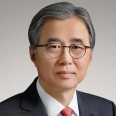At a recent international conference hosted by the Asan Institute for Policy Studies, Professor Michael Green of the University of Sydney was asked whether Asia needs a collective security arrangement similar to the North Atlantic Treaty Organization (NATO). He replied, “Never Say Never.” This was an acknowledgement that it might be necessary.
As the U.S.-centered alignment among South Korea, Japan, Australia, and the Philippines has strengthened in recent years, China accused the United States of trying to build an “Asia-Pacific version of NATO.” Calls for establishing an Asian version of NATO stem from an increase of threats in the current security environment and the necessity for nations to consolidate their capabilities in response.
When NATO was formed in 1949, the fate of Europe was in a dire situation. The former Soviet Union not only established communist regimes in occupied Eastern Europe but it also incited communist movements in Italy and Greece, aiming for a domino effect of communization across Europe. Through the Berlin Blockade from June 1948 to May 1949, the former Soviet Union attempted to take over Germany. It seized a geopolitical advantage with the capacity to deploy formidable military forces into Western Europe at any time, whereas the United States was a distant power far across the Atlantic. In this precarious situation, Europe chose to unite its liberal democratic allies, culminating in the formation of NATO in 1949.
The current security environment in East Asia is no different from that of Europe during the formation of NATO, and even more severe. North Korea has exacerbated the crisis on the Korean Peninsula by defining inter-Korean relations as “two states hostile to each other.” The increasing threats triggered by North Korea’s nuclear and missile capabilities cause significant unrest not only to South Korea but also to neighboring countries and the broader Indo-Pacific region’s security and peace. Despite being permanent members of the United Nations Security Council (UNSC), China and Russia shield North Korea, propagandizing that its “legitimate security concerns” should be respected.
China is causing conflicts in the South China Sea and East China Sea with its unilaterally claimed maritime boundary, the “Nine-Dash line,” and it is disrupting military stability in the Taiwan Strait through Taiwan blockade exercises. Russia is exerting coercive influence over Central Asian countries, including military intervention in Kazakhstan during the protests in 2022, and it is maintaining tensions with Japan over the Northern Territories.
The United States is located far across the Pacific and is responding to the situation in East Asia through its bilateral alliances. The U.S.-centered “hub-and-spokes” system could become ineffective if the United States withdraws, a scenario that cannot be ruled out depending on the outcome of the U.S. presidential election in November. Even though the United States promised to provide extended deterrence against the increasing threat from North Korea through the “Washington Declaration,” the details of extended deterrence remain unclear. Some experts argue that conventional responses could sufficiently deter North Korea’s nuclear threat. While conventional weapons have military utility, they lack the political and psychological effect that nuclear weapons have and cannot achieve a “balance of terror.”
Compared to Europe, two things are currently missing in East Asia. The first is multilateral security cooperation among like-minded countries. The second is “nuclear-sharing” through the deployment of U.S. nuclear weapons. To counter the authoritarian coalition of North Korea, China, and Russia, a collective security systems among liberal democracies must be established to address various security threats. Starting with South Korea, the United States, Japan, Australia, and New Zealand, and with potential participation from the Philippines, Indonesia, and India, preparations must begin now to establish an “Asian version of NATO.” It can be called the “Indo-Pacific Treaty Organization (IPTO)?”
NATO’s defining feature has been its policy of “nuclear-sharing.” In the 1960s, as concerns over nuclear threats from the Soviet Union grew, the United States deployed over 7,000 nuclear weapons in Europe and established the Nuclear Planning Group (NPG) to share information related to nuclear weapons with NATO allies. Even today, following the end of the Cold War, the United States still maintains approximately 100 to 120 tactical nuclear weapons in Germany, Belgium, the Netherlands, Italy, and Turkey. The logic of deploying tactical nuclear weapons in Europe but not in the Korean Peninsula, where the security situation is more severe, is unconvincing.
In May, Senator Roger Wicker, the ranking member on the U.S. Senate Committee on Armed Services, proposed “exploring new options—such as nuclear-sharing agreements in the Indo-Pacific and redeployment of U.S. tactical nuclear weapons on the Korean peninsula—to bolster deterrence on the Korean peninsula.” It is now imperative for the United States to engage in serious discussions about “nuclear-sharing” with South Korea and other countries in East Asia.
Establishing the IPTO is crucial in preparing for potential shifts in U.S. politics. In democratic nations, elections can lead to changes in administration and, consequently, policy adjustments. There is concern that if former President Trump is re-elected, it could impact alliances.
In Asia, where conflicts can arise at any moment, multilateral cooperation is crucial. A crisis in the South China Sea or Taiwan Strait could lead to a dispersal of U.S. military resources; North Korea may think it is an opportunity to undertake large-scale military provocations. To address concurrent crises on the Korean Peninsula and elsewhere in Asia, like-minded countries with shared values and systems must come together.
A collective security framework has the potential to not only curb destabilizing actions by Russia, China, and North Korea but also incentivize them towards collaborative endeavors in constructive domains, thereby providing us leverage in our bilateral relations with China or Russia. Establishing a multilateral security cooperation body to unite East Asian countries, where the security situation is becoming more severe than in Europe, is not an option but a must.
* The view expressed herein was published on June 17 in The Chosun Ilbo and does not necessarily reflect the views of The Asan Institute for Policy Studies.

 Facebook
Facebook Twitter
Twitter